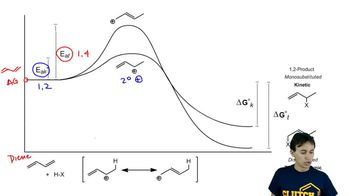Show how you would convert aniline to the following compounds.
(f) benzonitrile

 Verified step by step guidance
Verified step by step guidance Verified video answer for a similar problem:
Verified video answer for a similar problem:



 6:59m
6:59mMaster Replacement Reactions with a bite sized video explanation from Johnny
Start learning